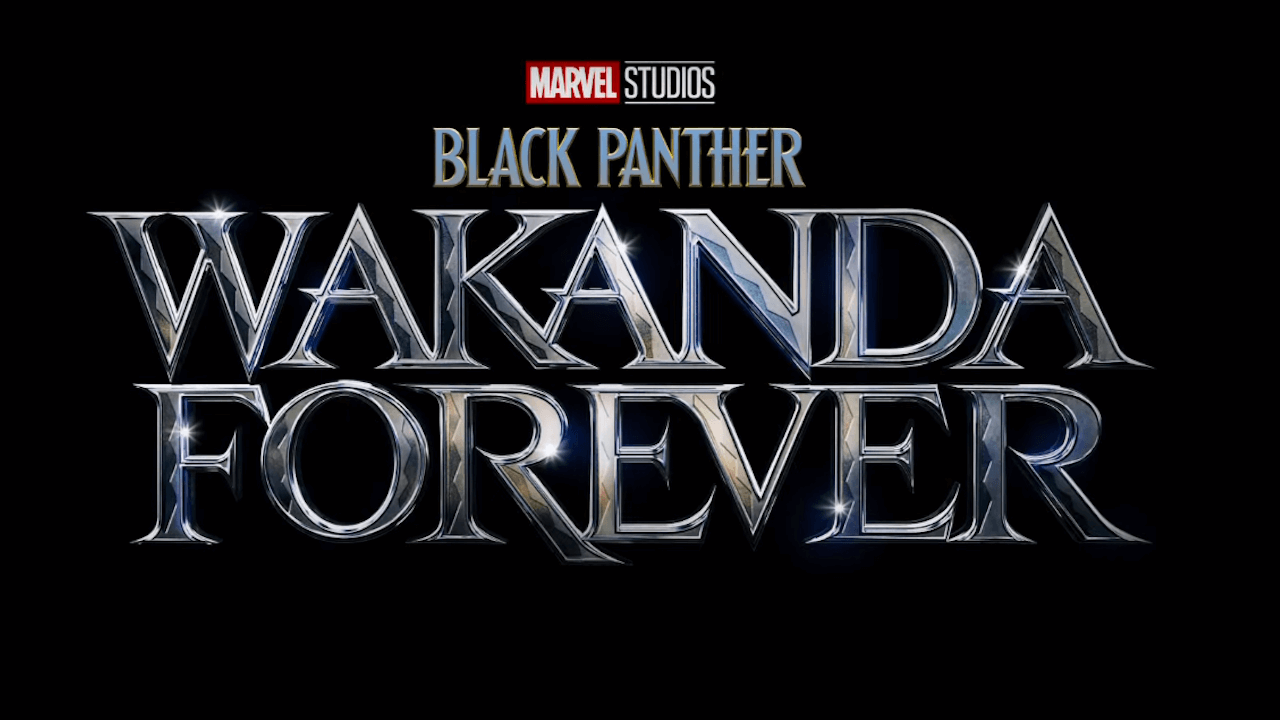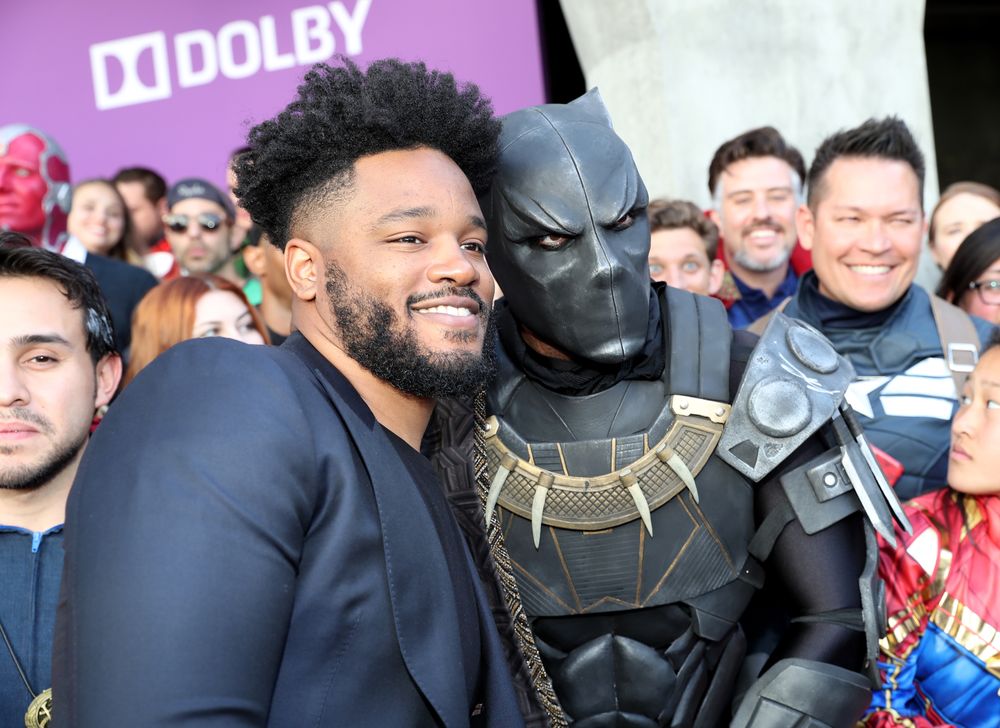Marvel has released the second trailer for the highly anticipated follow-up to the 2018 film Black Panther. It looks just as you’d expect: intriguing and action-packed, teasing Letitia Wright in the Panther suit. Black Panther: Wakanda Forever will probably be a great time in the theater (I’ll be seated in some Dolby Cinema watching it on opening weekend), and seems like it’ll be very respectful to the legacy of the original Black Panther, the late great Chadwick Boseman. However, the trailer has me craving a new Ryan Coogler film for adults—you know, something that’s truly “a reflection of the world outside our window,” something with dramatic and mature themes, something without action figures and PepsiCo tie-ins.
I know it’s kind of insane for me—someone who did not make Goodfellas—to say Martin Scorsese was wrong when he claimed the products Marvel puts on screens are “theme parks" and "not cinema," but he is. The way Marvel films are made and the way films were made in the old Hollywood system someone like Marty grew up on are not all that different. Now there’s a lot more money and technology at studios’ disposal, but they’ve always churned out low-calorie entertainment, and they always will. Every time a director wrangles together a high-budget affair, with hundreds and hundreds of people on set, coupled with arduous pre- and post-production stages, it’s a miracle.
I can say with great authority—as someone who wrote and directed an awful short film—that making movies is hard as hell, and filmmaking is filmmaking, point blank. From Skinemax to Stagecoach to Cape Fear to Black Panther, it’s all filmmaking. It doesn’t matter if it sucks or doesn’t live up to someone’s individual ideals of snobbery. This is a reality cinephiles would care not to admit. I’m not here to give a full-throated defense of the men-in-tights movies; I’m just calling a spade a spade. All that said, the Marvel Cinematic Universe and the entire Walt Disney Studios Motion Pictures conglomerate are ruining the landscape of filmmaking as a whole. Hear me out.
Think about it: Disney snatches up theater space and demands cineplexes play their movies on an obscene number of screens. In May, an AMC Theater in Times Square had 70 screenings of Doctor Strange in the Multiverse of Madness in a single day. Movie theater screens are finite, so when one film plays approximately five times per hour, a more earnest movie gets tossed aside.
The superhero movie complex is taking up creative space and time from bright young filmmakers.
In a 2015 interview with Howard Stern, Quentin Tarantino gave some insight into Disney’s shady dealings. His picture, The Hateful Eight, was supposed to play for two weeks at the iconic Cinerama Dome in Hollywood during Christmastime. Disney, however, wanted Star Wars: The Force Awakens to play there for the entire holiday season, and, as Tarantino recalled, the mouse brand gave the Cinerama Dome an ultimatum: “If you honor your deal with The Hateful Eight, we will not allow you to have Star Wars, the biggest movie in the world, we will not allow you to show it at any of your ArcLight movie theaters.” Seeing as this would crush a theater financially, you can guess how that ended up.
The superhero movie complex isn’t just taking up physical space, though; it’s taking up creative space and time from bright young filmmakers. Do you know the last time Coogler had a movie explicitly for grown-ups in theaters? It was in the distant past of 2015. LeBron had yet to bring the Cavs back from a 3-1 lead. Prince was alive. Rihanna made music. The president was Black. There aren’t really many filmmakers around like Coogler—he’s cool, brilliant, has a very thick accent, and has the swagger of a thousand suns. His debut feature, 2013’s Fruitvale Station, is beautiful in the same way it's tragic, thanks to his closeness to the story and the affectionate way he tells Oscar Grant’s story. With Creed, released two years later, the Oakland native had the tall order of reimagining an all-time great film franchise, Rocky, and succeeded expectations, creating an electrifying action drama that felt fresh yet familiar and drenched in Blackness.
It’s no wonder Coogler was tapped to helm a Marvel film set in a fictional African nation. There was probably nobody more perfect at the time. Black Panther was a triumph, too. It’s a singular experience within the Marvel universe, and all its records, outstanding performances from people like Boseman, and all the pride it put in young Black children’s hearts cannot be ignored. But Coogler has so much more to offer as a storyteller, and we’re hungry for all of the possibilities. It’ll probably be a decade at the earliest since we’ve had a Coogler picture that isn’t based on some comic book. For years, Coogler has had a project with Michael B. Jordan in development about educators at an Atlanta school who modified standardized test scores. It’s adapted from a New Yorker piece with a script by Ta-Nehisi Coates. What do I have to do to finally see this movie? Do I gotta go full Tonya Harding on Kevin Feige?
Coogler hasn’t solely been hard at work in a Marvel sweatshop or anything like that. He produced Judas and the Black Messiah, a documentary about his hometown’s public school systems, and will have a hand in Regina King’s second feature. But it’s not the same as Coogler sitting back in the director's chair to tell another more personal, more adult story.
I want for Coogler what we saw from Rian Johnson after he got out from under Disney’s thumb. Johnson wrote and directed the only somewhat-cerebral Star Wars film and got a lot of flack for it, because Star Wars fans are clowns. If there’s anything that lot hates more than too much melanin, it’s turning their dull little morality tale into something more provocative and human. After making The Last Jedi, Johnson turned around and released Knives Out, his best film yet. Shane Black did the same after he directed Iron Man 3 and followed it up with The Nice Guys. (It’s up for debate whether The Nice Guys is better than the scripts Black has penned, but as far as his own feature films, ain’t nothing even close to The Nice Guys.) And I wish the same for Nia DaCosta, after she directs The Marvels. Hopefully, after that’s released and bullies at the box office, she’ll do the same with her anticipated film The Water Dancer—an adaptation of Coates’ debut novel—without years and years of development.
If spending a decade-plus at Marvel Studios is what Coogler’s heart desires, then good for him. Go make your money, my brother, I’m happy for you (and let me hold 10 G’s real quick). But whenever you’re ready to make what Scorsese calls the “cinema of human beings trying to convey emotional, psychological experiences to another human being,” I’ll be seated in a Dolby Cinema, popcorn in hand.


